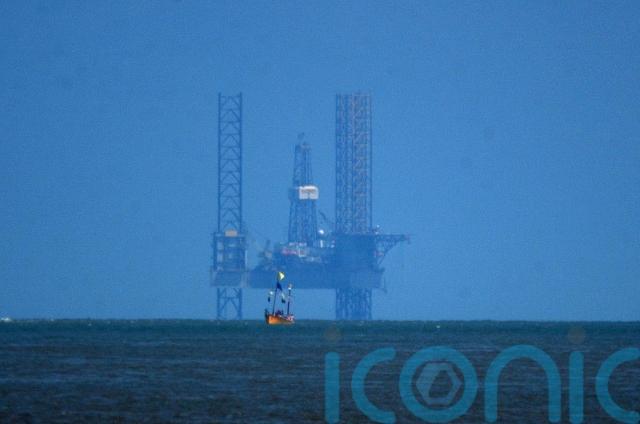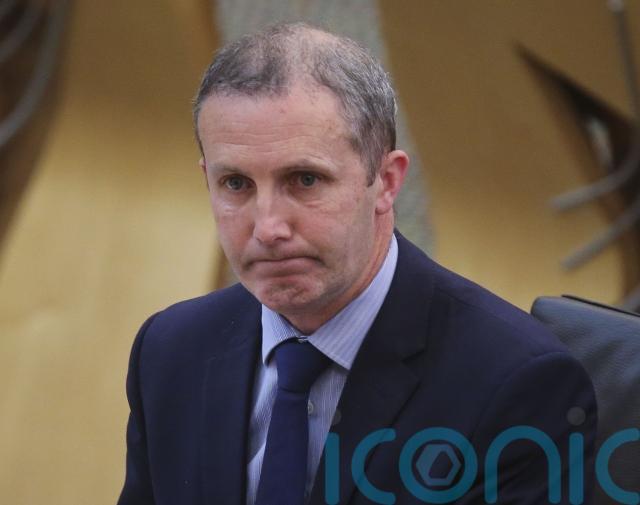
Most Scots want to avoid a race to shutdown North Sea production, a poll has found, with more than a third wanting to extend oil and gas extraction.
North of the border, 59% of those surveyed told pollsters that extraction should be allowed to decline as forecast or extended, while 25% said production should be halted immediately or its end speeded up, according to a survey for Offshore Energies UK.
David Whitehouse, OEUK’s chief executive, said: “This is an excellent vote of confidence in the people in this industry who work hard to produce the energy we need to power and heat our homes and businesses.”
Some 36% of the 1,000 Scottish adults asked between February 6 and 13 said offshore production should be extended beyond 20 years where possible.

But the Opinium survey found that just 5% wanted to see the Scottish Government act to end North Sea oil and gas production immediately.
Another 20% told pollsters they wanted the Government to act to end extraction quicker than its natural decline, forecast to be around 20 years.
The poll comes as the future of the North Sea is predicted to be a key issue for the SNP members who will choose Scotland’s next First Minister.
Of those who said they voted for Nicola Sturgeon’s party at the 2019 general election, 28% told pollsters the Government should not act to speed up the decline and another 27% said extraction should be extended beyond the next 20 years where possible.
Of 2019’s SNP voters, 32% said there should be an immediate or faster end to North Sea production. Some 13% said they did not know.

There was not enough respondents who said they voted for the Scottish Greens, who signed the Bute House power sharing deal after the last Holyrood election and have two junior ministers in Government, to give a breakdown.
North Sea production is currently in decline, and is expected to be around a third of 1999 levels by 2035.
In January, Energy Secretary Michael Matheson said extraction would “effectively end” within the next 20 years as he opened a consultation on whether there should be a presumption against new drilling as part of Holyrood’s Energy Strategy and Just Transition Plan.
“That projection takes account of the remaining potential development in the North Sea and is without any political decision to reduce consumption due to the climate emergency,” he told MSPs last month.
“This means that domestic production will effectively end within the next 20 years if we do nothing.
“The draft strategy is consulting on whether we should act faster than this.”
I will not support an accelerated net zero path which sees us turn off the North Sea taps, throw 10s of 1000s of oil workers out of jobs, hollow out NE & H&I communities whist still using and importing hydrocarbons. I will stand up for our oil workers and their communities.
— Ash Regan MSP (@AshtenRegan) February 20, 2023
Leadership hopeful Ash Regan, who is MSP for Edinburgh Eastern, said on Monday: “I will not support an accelerated net-zero path which sees us turn off the North Sea taps, throw tens of thousands of oil workers out of jobs (and) hollow out North East and Highland and Island communities whiles still using and importing hydrocarbons.
“I will stand up for our oil workers and their communities.”
While offshore licensing is reserved to the UK Government, the plan put forward by Mr Matheson said the Scottish Government was consulting on whether there should be a presumption against new exploration for oil and gas.
Meanwhile, UK Energy Secretary Grant Shapps is expected to make a decision on the Rosebank oil and gas field, which is 80 miles off the coast of Shetland and is one of the largest untapped discoveries in British waters, imminently.
But, on Tuesday, comedian Frankie Boyle and climate campaigner Vanessa Nakate urged the Prime Minister Rishi Sunak to throw out the plans in an open letter which was also signed by a number of other activists and organisations.
The Scottish comedian said “approving Rosebank makes no sense” and “we’re in a climate emergency, renewable energy is so much cheaper, and anyway this is oil for export”.
A spokesperson for the Scottish Government said it needs to set out a pathway with its draft Energy Strategy and Just Transition Plan, published last month, to ensure “a fair and just transition for our energy workforce, and to bring a new generation of skilled workers into a flourishing energy industry as part of a net zero Scotland”.
The spokesperson added: “Given the North Sea basin is mature and production is already in decline, any other course of action would only serve to put jobs and our economy at risk.”
They said independent research based on industry projections finds that production in the North Sea will be around a third of 2019 levels by 2035 and below 3% of the 1999 peak by 2050, and that existing sanctioned fields will contribute over 80% of Scotland’s future production.
“Reducing our energy consumption while ramping up our energy generation capabilities through renewables and hydrogen will mean that, in a net zero Scotland, we will not only be less reliant on importing oil and gas, but a net exporter of cleaner and greener energy to the rest of the UK and beyond,” they added.
Subscribe or register today to discover more from DonegalLive.ie
Buy the e-paper of the Donegal Democrat, Donegal People's Press, Donegal Post and Inish Times here for instant access to Donegal's premier news titles.
Keep up with the latest news from Donegal with our daily newsletter featuring the most important stories of the day delivered to your inbox every evening at 5pm.